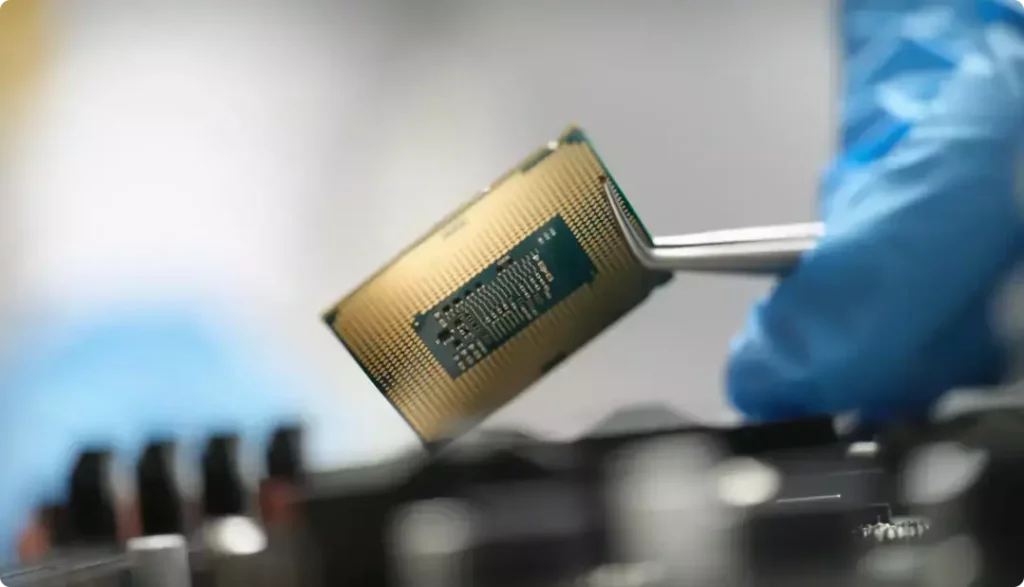
India is making significant strides in semiconductor manufacturing
In recent years, India has been making significant strides in establishing a domestic semiconductor manufacturing ecosystem, recognizing the critical importance of these chips for economic growth, technological self-reliance, and national security. The country is emerging as a global leader in high-tech production, and its efforts to develop a robust semiconductor industry are expected to increase its technological self-reliance and reduce its dependence on foreign chip imports.
The Indian government has been actively promoting the development of a domestic semiconductor industry, recognizing the strategic importance of this sector for the country’s economic growth and technological advancement. In recent years, the government has taken several initiatives to encourage the growth of the semiconductor industry, including the establishment of a dedicated semiconductor policy, the allocation of funds for research and development, and the establishment of a number of semiconductor-focused initiatives.
One of the key initiatives taken by the government is the establishment of the Semiconductor Complex Limited (SCL), a joint venture between the government and the state-owned company, Indian Space Research Organisation (ISRO). The SCL is a 100-acre facility located in the city of Hyderabad, which is expected to become a hub for semiconductor manufacturing in the country.
The SCL is equipped with state-of-the-art facilities and equipment, and is expected to produce a range of semiconductor products, including memory chips, microprocessors, and other custom-designed chips. The facility is also expected to provide design and development services to companies in the sector, and to offer training and education programs to students and professionals.
Another key initiative taken by the government is the establishment of the India Semiconductor Mission (ISM), a dedicated initiative aimed at promoting the growth of the semiconductor industry in the country. The ISM is a joint initiative between the government and the industry, and is expected to provide a range of support services to companies in the sector, including funding, technical assistance, and market research.
The ISM has also established a number of initiatives aimed at promoting the growth of the semiconductor industry, including the establishment of a number of semiconductor-focused innovation hubs, and the launch of a number of research and development programs. The ISM has also provided funding to a number of start-ups and small and medium-sized enterprises (SMEs) in the sector, with the aim of supporting their growth and development.
In addition to these initiatives, the Indian government has also been promoting the development of the semiconductor industry through a range of policies and incentives. For example, the government has introduced a number of tax incentives aimed at encouraging the growth of the sector, including a reduced corporate tax rate and a number of tax breaks for companies involved in research and development.
The government has also established a number of initiatives aimed at promoting the growth of the semiconductor industry, including the establishment of a number of semiconductor-focused innovation hubs, and the launch of a number of research and development programs. The government has also provided funding to a number of start-ups and SMEs in the sector, with the aim of supporting their growth and development.
India’s efforts to develop a domestic semiconductor industry are expected to have a number of benefits for the country, including increased technological self-reliance, reduced dependence on foreign chip imports, and the creation of a number of high-tech jobs. The growth of the semiconductor industry is also expected to have a number of spin-off benefits for other sectors of the economy, including the IT and electronics sectors.
In conclusion, India is making significant strides in establishing a domestic semiconductor manufacturing ecosystem, recognizing the critical importance of these chips for economic growth, technological self-reliance, and national security. The country’s efforts to develop a robust semiconductor industry are expected to increase its technological self-reliance and reduce its dependence on foreign chip imports, and are expected to have a number of spin-off benefits for other sectors of the economy.
News Source:
https://youtu.be/kGHO8vC63LE






